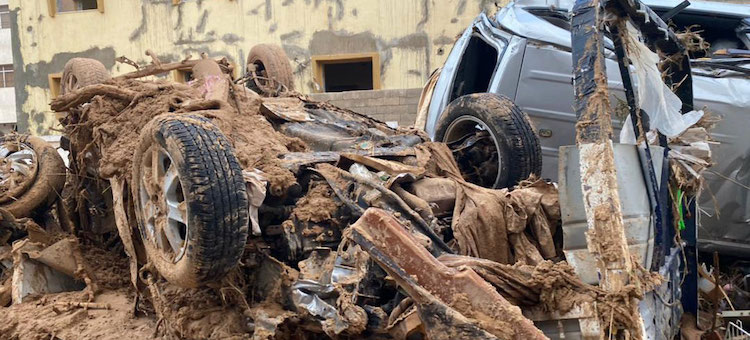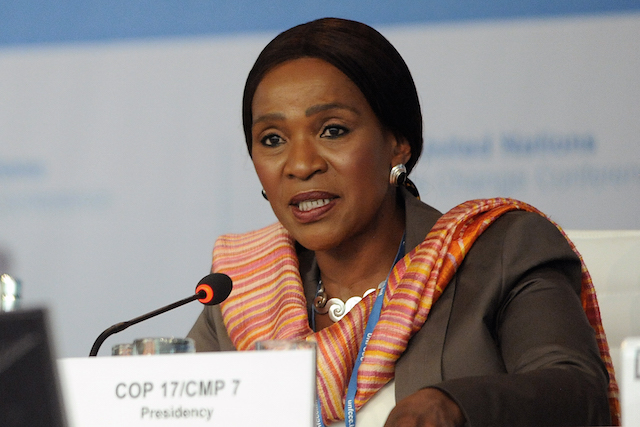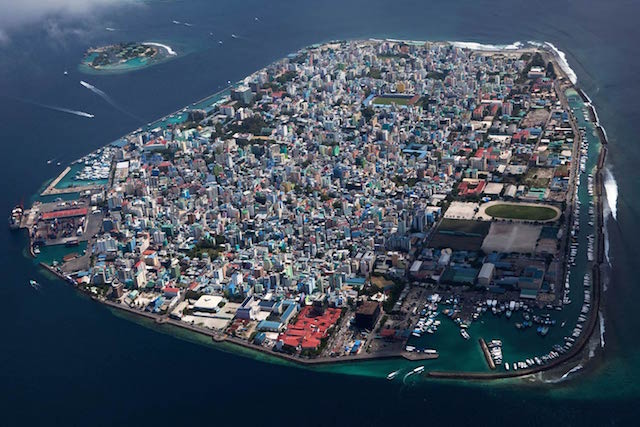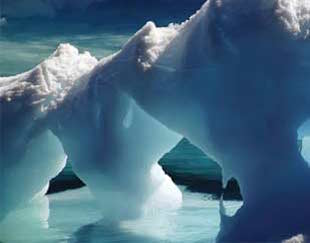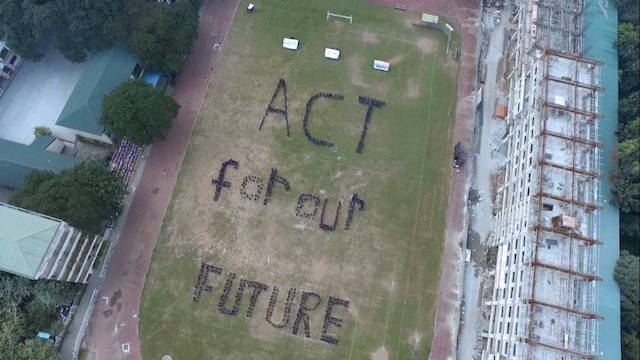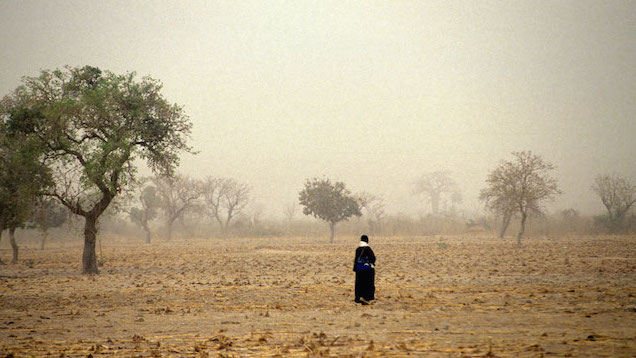By Lisa Vives, Global Information Network NEW YORK. 17 September 2023 (IDN) — As stricken Libyans searched for signs of life amid the wreckage left by two enormous dams that burst in a hurricane-strength storm, anger was growing over warnings that were ignored but could have possibly prevented the worst disaster in the country’s modern […]
Polluters and Sufferers Push for Legally Binding Deal by COP21
By Jaya Ramachandran | IDN-InDepthNews Analysis
BERLIN | BRUSSELS | PARIS (IDN) – The UN Climate Change Conference (COP21) in Paris would be recorded in the annals of global negotiations if only because a block of wealthy nations responsible for contributing to global warming made a common cause with a group of developing nations suffering the dire consequences of climate change.
Developing Nations Need Hundreds of Billions To Address Climate Change
By Nozipho Mxakato-Diseko* | IDN-InDepthNews Viewpoint
PARIS (IDN) – Warming of the climate system is unequivocal. Concentrations of greenhouse gases have increased and as a result the atmosphere and ocean have warmed, the amounts of snow and ice have diminished, sea level has risen, and the impacts are being felt in particular by developing countries. According to the latest science, the emissions gap with respect to the 2 degree or 1.5 degree goal is not closing.
Thinking or Not Thinking About Tomorrow
By Julio Godoy* | IDN-InDepthNews Analysis
BERLIN (IDN) – A series of interviews with the German Economic Affairs and Energy Minister Sigmar Gabriel and with leading representatives of energy industries of the country, broadcast by the German public television network in run-up to COP21 in Paris, seemed to prove what critics of climate change conferences often claim: The governments of industrialised countries model their opinions and policies on the criteria laid down by private businesses.
Climate Summit An Opportunity for Accelerating Transformation
By J C Suresh | IDN-InDepthNews Report
TORONTO (IDN) – The Global Environment Facility (GEF) expects the twenty-first meeting of the Conference of the Parties (COP21) to the UN Framework Convention on Climate Change (UNFCCC) – from November 30 to December 11 in Paris – to be a “turning point”.
It expects COP21 to send “a loud and clear signal to citizens, markets and the private sector that the transformation of the global economy is inevitable, beneficial, and already underway”.
Governments from around the world are meeting in Paris to reach a new climate change agreement that aims to keep global average temperature rise below 2 degrees Celsius (3.6 degrees Fahrenheit) – the level beyond which there will be irreversible impacts.
Climate Marches Planned in 150 Countries Ahead of Paris Summit
By J Nastranis | IDN-InDepthNews Report
A thousand students from Rizal High School, in Pasig City, Philippines form a human banner that reads: “Act for our Future,” to call for a strong and fair global climate agreement ahead of the international climate talks in Paris. Credit: 350.org
NEW YORK (IDN) – In run-up to the start of the COP21 climate summit in Paris on November 30, hundreds of thousands of people will be taking to the streets in over 2,000 events spread across 150 countries to demand that negotiating parties keep fossil fuels in the ground and finance a just transition to 100% renewable energy by 2050.
Gender Mainstreaming Essential to Combat Climate Change
By Ana Maria Currea* | IDN-InDepthNews Viewpoint
NEW YORK (IDN | UNDP) – It is well established that the poor are most vulnerable to the effects of climate change, and that women, who account for the majority of the world’s poor, are disproportionately impacted.
Why is this fact so important? And what are we doing to address it?
Women farmers account for 45 to 80 percent of all food production in developing countries. This means that any changes in climate – such as droughts and floods –affect their livelihoods, incomes and food security more than they do men.
Experts Caution about Rising Perils of Climate Change
By Ramesh Jaura | IDN-InDepthNews Analysis
BERLIN | GENEVA (IDN) – Ahead of a landmark United Nations climate conference beginning on November 30 in Paris, two international organizations are warning that unless appropriate steps are taken, the planet would become “more dangerous and inhospitable for future generations” and poverty stretch its wings further by 2030.
Groups Urge Coordinated Communications Initiatives on Climate Change
By Rodrigo Pérez | IDN-InDepthNews Report
QUITO (IDN) – A group of major international organisations has issued a call for strong and coordinated communications initiatives to support action on climate change.
The UN-backed Renewable Energy and Energy Efficiency Programme (REEEP) and Climate Technology Centre and Network (CTCN) together with the Overseas Development Institute, Climate and Development Knowledge Network and dozens more are backing the launch of the ‘Climate Knowledge Brokers’ Manifesto’, which lists the key principles for communicating climate change effectively and so precipitating a step change in society’s response to the climate crisis.
Strengthening Community Forest Rights Mitigates Climate Change
By Caleb Stevens, Robert Winterbottom, Sarah Parsons and Carni Klirs*
WASHINGTON DC (IDN | WRI) – Deforestation and other land changes produce about 11 percent of all greenhouse gas emissions globally. A new report reveals an undervalued and often-overlooked strategy for curbing these emissions – strengthening the rights of forest communities.
Governments around the world legally recognize at least 513 million hectares of community forests, land held collectively by either rural populations or Indigenous Peoples. This area stores about 37 billion tonnes of carbon – 29 times the annual carbon footprint of all the passenger vehicles in the world. Securing Rights, Combating Climate Change, a new report from WRI and the Rights and Resources Initiative, shows that by protecting and expanding the amount of officially recognized community forests, national governments can meet their climate goals while also improving citizens’ livelihoods.

